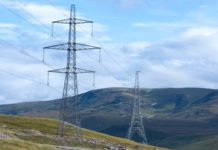 As the debate continues over energy bills, an increasing number of businesses are seeking to take greater control of costs by taking a more active approach to their energy demand.
As the debate continues over energy bills, an increasing number of businesses are seeking to take greater control of costs by taking a more active approach to their energy demand.
Limiting demand or even generating energy at peak times can save industrial and commercial businesses tens of thousands of pounds on the network charges that form an increasing part of their annual electricity bill. The problem is, running on-site generation can be almost as costly. But Centrica says it can maximise chances of shifting loads out of peak periods in the minimum number of calls.
One of the key drivers for this activity are Triads, a National Grid mechanism to recover the cost of the transmission system from large energy consumers. Triad periods are defined as the three half hours of highest peak demand over winter, at least 10 days apart. The system operator bases annual charges on how much power a customer consumes over those three periods.
So far so simple. The catch however, is that what actually constitutes a Triad is only confirmed by Grid retrospectively. The result is that large energy users have to guess when they think a Triad might occur. That is National Grid’s intention, because it helps reduce demand on the system when it’s most stretched. But businesses that get it wrong may be making a six-figure mistake.

To minimise that risk, energy suppliers and consultants send out Triad warnings. But nobody wants to miss a Triad. So in recent years, the number of warnings has significantly increased, “in many cases leading firms to unnecessarily run back-up generation at a loss”, according to Centrica’s head of asset optimisation Mark Hedges.
The business constantly monitors the electricity system and variable factors such as weather forecasts to predict Triad events, notifying customers of a possible ‘event’ ahead of time in order to prompt a reduction in demand and firing up of backup generators.
“Last year we were one of the few suppliers to correctly predict all three Triads – and we did so in 24 calls.”
Turn risk into reward
Hedges says Triad avoidance is often the first step towards broader demand response participation. Through its Distributed Energy & Power business, Centrica is increasing activity in that sector. Hedges says it is keen to sign Optimisation Agreements with businesses – whether or not they buy their energy from the company through its British Gas brand.
The company provides route to market services for 8.6GW worth of customer assets and with a fleet of six gas-fired power stations of its own, the business is well versed in the intricacies of how to generate best returns via a revenue share with asset owners.
Back-up generation, says Hedges, is particularly suited to the service, because it allows companies to monetise existing equipment. Run times are sufficiently low as to be well below emissions limits recently proposed by government, he says. Moreover, by participating in balancing when the system is most stressed, generators are up and running at precisely the times they are most likely to be needed.
Centrica currently has around 100MW of back-up generation via Optimisation Agreements. But Hedges says only a fraction of the UK’s back-up generation is being effectively monetised. Comprehensive data on total back-up generation capacity is scant. Estimates range from 5GW to 20GW. The Association for Decentralised Energy reckons around 3GW of existing back-up generation could be used for demand-response today.
Failure to harness that capacity is a missed opportunity, given the UK’s slim margin of power supply over peak demand. National Grid needs more demand-side participants to keep the system in balance, so although mechanisms such as Triad may change in the future, Hedges believes the value of flexibility will only increase.
Maximise returns
While the demand-response market is becoming increasingly crowded, Hedges thinks businesses will ultimately partner with those that deliver the best returns – and which can demonstrate strong experience in the wholesale and balancing markets, as well as solid corporate credentials.
“Companies want to minimise risk. Our business units can help them to avoid costs, run more efficiently and generate revenue for both parties,” he says.
“That is a compelling proposition – and Triad is just the first step.”
To find out more about how Centrica and British Gas can help you to take control of your energy, go to www.centrica.com/takecontrol.
This is a sponsored article created by The Energyst in partnership with Centrica.
Related stories:
British Gas: £4bn energy efficiency opportunity for UK firms
UK manufacturers say Esos not working, DSR too complicated and Triad needs reform
Businesses ‘shutting down from 4pm-7pm due to peak power costs’
Centrica: Floodgates on battery storage to open in 2017
Click here to see if you qualify for a free subscription to the print magazine, or to renew.
Follow us at @EnergystMedia. For regular bulletins, sign up for the free newsletter.



